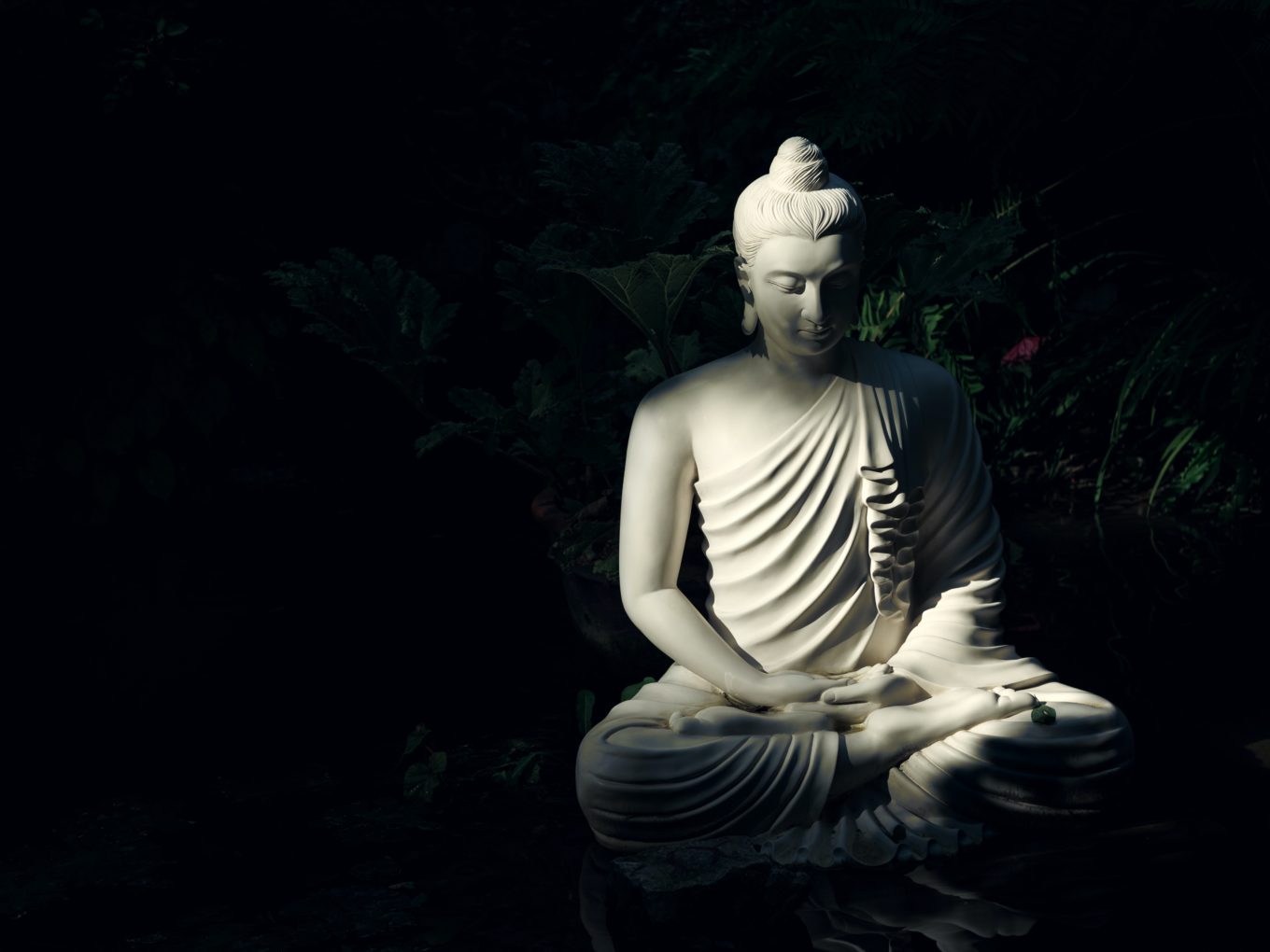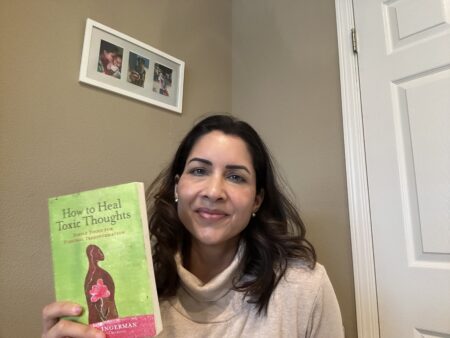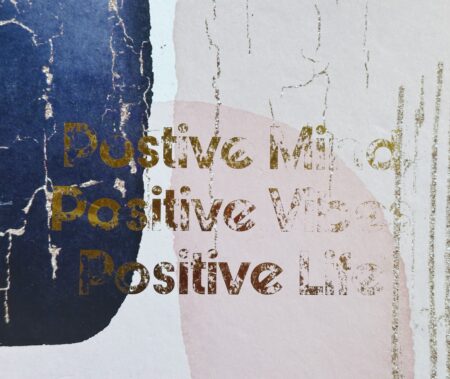“We’re 2 minutes away,” I alerted my parents as I slowed down my driving.
It was our first time attending a lecture here.
I was unsure of where inside this self labeled “spiritual awakening center” the talk would be held. I wanted to street park in front of the entrance to minimize our time walking in the rain and to give us time to find the correct room. The lecture would start in 4 minutes.
During my childhood, our family frequently attended lectures of all faiths, religions and beliefs. My parents just happened to be in town, so it was natural for them to come along with me to discover a kriya-yoga based spiritual center in my new hometown.
“I don’t know what the deal is here – but we can always leave early, ” I hedged with my words as my eyes fixed on my rear view mirror, waiting for a clearance to safely hop out of my car.
Just as I put my hand on the handle and readied to leap with my spiritual notebook in hand, my dad interjected…
“And remember what Swami Vivekananda said – if they ask for money, they aren’t your guru.”
The door slammed.
Spiritual Testing Of Your Guru
Six months prior, my parents and I were having a casual conversation at my home about the gurus, teachers and, always intertwined, fraudsters in the spiritual world. We had each seen our own fair share of the latter two. My parents had just visited their mutual guru in Washington and were full of new learnings to share.
“I don’t trust most so-called spiritual teachers. They’re everywhere these days. I am always skeptical until they prove me wrong,” I said firmly, having experienced it directly during my time in Vrindavan, India and with other teachers.
“Yes, you HAVE be vigilant at all times – that’s your duty. You should also use Swami Vivekananda’s checklist before calling anyone your guru, your spiritual teacher or following a spiritual path,” my father said.
“What is it?” I asked curiously.
Healers, Shamans and Psychics, oh my!
In the last few years, I had deviated from working with religious, yogic or self-help based approaches as I always had – and went a totally different route I began seeing healers, mediums, astrologers, yogis, light workers, shamans, crystal experts and energy medicine practitioners, just to name a few.
Some of these encounters were life changing, expansive and took me out of my head and into my heart in ways that religion, self-help and psychology never could.
Some of them were a joke. A couple were manipulative or full of ego from having truly God-given abilities that were being misused to gain power or control.
When I was prodded to take steps and consider paths I was not interested in or ready to take, it created a great deal of confusion for me.
“This doesn’t feel right, but they know better, right? They are getting this from God.”
Many wanted me to come back for more sessions, priced between $100- $1000. It was a confusing experience.
So, I dug into to explore what wisdom had been written about the guru-disciple relationship to test against my own teacher and consultants to develop scrutiny for when dealing with guru-like healers and teachers.
“For when the disciple is ready the Master is also ready”
-Mabel Collins, from “Light on the Path”
The Guru-Disciple Relationship
The Guru-Disciple relationship is part of a religious dissemination system used in India for thousands of years.
A guru is the person who introduces you to God and helps you reach your highest spiritual potential.
Paramahansa Yogananda says “a true guru is always aware of the disciple and watches over him or her with constant love and protection.” The Sanskrit scriptures describe the guru as “dispeller of darkness,” he says.
So strong is the guru-disciple tradition today in India that there is an annual celebration called Guru Purnima dedicated to it.
But when it comes to accepting someone as your guru, know that yours will need to go through some the hoops. Even after, you will need to maintain your discernment.
My own spiritual teacher reminds me of this. That I should never abandon my discernment when it comes to my spiritual exploration. She has patiently listened to all my stories about my visits with healers, mediums and the like and offered the following advice —
“It is dangerous to hand our own power over to someone and ask them to do our spiritual walk along with us. The walking should be done by ourselves alone.”
Given this longstanding practice in India, I wanted to seek direction from wise sources on the matter. In the book “Swami Vivekananda and Non-Hindu Traditions: A Universal Advaita,” Vivekananda goes more deeply into the sign of a true guru, who are needed to communicate the “spirit of religions…which empowered and enabled devotees to act spiritually.”
In the book, it states that “it was very important to Vivekananda that a devotee chose a Guru based on his/her right and proper conduct, rather than any external influences such as fame or politics. In addition to this, Vivekananda set out three qualities that devotees should seek in a Guru according to the book.
A True Guru Has 3 Qualities
1. The Guru should have a vast knowledge of the spirit of the scriptures
- Vivekananda did not place weight on learning detailed scriptures or verses from books like the Bible, Koran or the Gita . Instead, he believed, that a Guru is meant to teach the spirit of these works and relay the spirit behind them.
2. The Guru should be “sinless”
- Vivekananda believed that in strong character in the realm of religious teaching was imperative: He said “If a man wants to teach me something of dynamics, or chemistry, or any other physical science, he may be anything he likes, because what the physical sciences require is merely an intellectual equipment; but in the spiritual sciences it is impossible from first to last that there can be any spiritual light in a soul that is impure.”
- How to evaluate “sinless” seems to be a personal call. To me, I believe it means that actions must match the person’s words.
3. The Guru needs to be motivated in an appropriate way
- Vivekananda was highly critical of any religious teachers who accept money, and he hold no truck with people who sought fame. He believed that a true Guru was one who worked simply out of a love for humankind at large: ‘God is love, and only he who has known God as love can be a teacher or godliness and God to man.’”
- In modern times, those seeking donations or trade are compatible with this
While these parameters can’t stop you from encountering those with dishonorable motives, it can help sieve them out faster.
It Starts With Instinct
Inside the spiritual center, I observed the wall hangings which omitted certain faiths and representations I was accustomed to seeing inside my previous center. That was the first yellow flag. The lecturer was warm, engaging and deeply learned. I enjoyed learning about the spiritual centers, or nadis, and how they can be influenced and accessed by breathing. I took copious notes. I learned a few things. Yet, my heart didn’t tingle in the way it does when I know it resonates with Truth that I am meant to continue to follow. But, I had wanted this place to be my new place. It was close to my home, with convenient lecture times and full of interesting people. I continued to stick it out.
As the discussion ended, the lecturer took questions and answered them with great aplomb. Then, it quickly took a turn.
“And if you’d like to learn more, simply sign up for our 8-week course on your way out. Prices start at $450 and after 6 completed courses you gain a certificate,” he began to sell the crowd.
What my heart couldn’t feel, my stomach could. It turned.
“Let’s go,” my dad said.
And back we went through the rain, my spiritual notebook a page thicker with wisdom gained yet damp from the still pouring rain.


